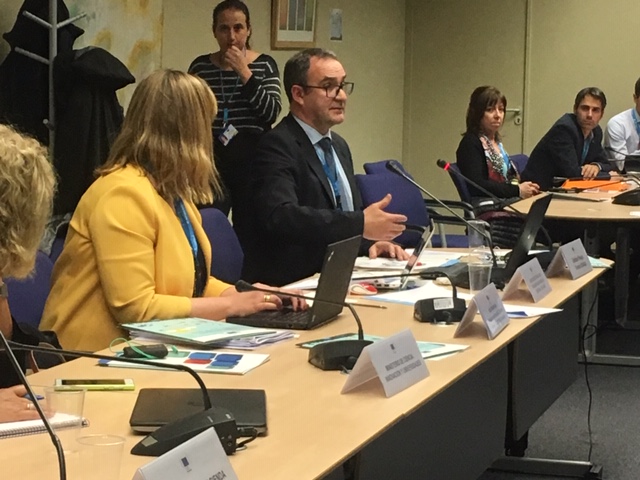Indicators of workforce and internationalisation are very operative
A group of experts of the Spanish development agencies agree that there are indirect indicators able to monitor the impact of smart specialization strategies. For example, the profile of the workforce labour contracts is a possible monitoring indicator to discover if a certain emerging technology is really being implemented in a region. Following this example, a region could monitor if there are new contracts for experts in 3D printing to get information if this technology is really applied. This information could be verified with other sources: like testing if there are many companies of the 3D printing in trade fairs of exhibitions. Other interesting indicator was the training requests done by private companies which showcases needs not solved by the market.
The detail analysis of the products exported and were could be as well an interesting source of information. One Spanish region has identified an emerging activity on technical plastics for automotive industry with this analysis. The foreign trade statistics are available very quickly for the development agencies. The participation in competitive international research and innovation programmes is as well a good indicator because it provides a good knowledge about what are the main strength of the companies in a territory compare with others.
Other interesting indicators
Another interesting option of monitoring indicator is to analise accurately the technologies included in the proposals that are submitted by enterprises in the regional programmes. For example, one Spanish region is receiving many proposals on internal software for “machine learning” in programs that support competitiveness in very different industries: logistics, environment, food, etc. It could be concluded with this example that machine learning is a relevant emerging technology for many companies in that region and it is really being implemented. From the other side, another region has not received any project proposal during several years of calls for technologies related to tourism despite it was a priority of their smart specialization strategies.
There are other indicators widely used such the increase of productivity (GVA/employee), the sector of activity where the new startups are created and the technology areas in which private companies contract applied research and innovation from the public research center (e.g Universities) and technology centers.
OaSIS gave the conclusions of the monitoring for smart specialisation strategies
These monitoring indicators are useful to update the regional innovation strategies. During the last six years every country and region in Europe has established a smart specialization strategy. These strategies are focused on the innovation as key element for the economic development of the territories. Each strategy prioritises and establish a policy mix of measure to support specific activities in close cooperation with the private initiatives. The smart specialization strategies request a complex governance model because the decisions for prioritization are taken by the public administration, the industry, the academia and the civil society. To support the decision process is necessary to get accurate information of the territory and establish an advanced monitoring system to validate the decisions taken for the prioritisation and policy mix of activities.
During this week, all the Spanish regional development agencies met with the European Commission (DG Regio and Joint Research Center), the Spanish government in a workshop organized by the Spanish association of development agencies (Foro ADR) and the development agency of Andalucia (Agencia IDEA). EURADA and the project OaSIS gave the conclusions of this practical workshop.
More information
– Monitoring smart specialization strategies. JRC. European Commission
– Spanish Association of Development Agencies. Foro ADR (in Spanish)
– Gianelle, C., Guzzo, F. and Marinelli E. (2019), “Smart Specialisation Evaluation: Setting the Scene“, Smart Specialisation – JRC Policy Insights, JRC116110, March


